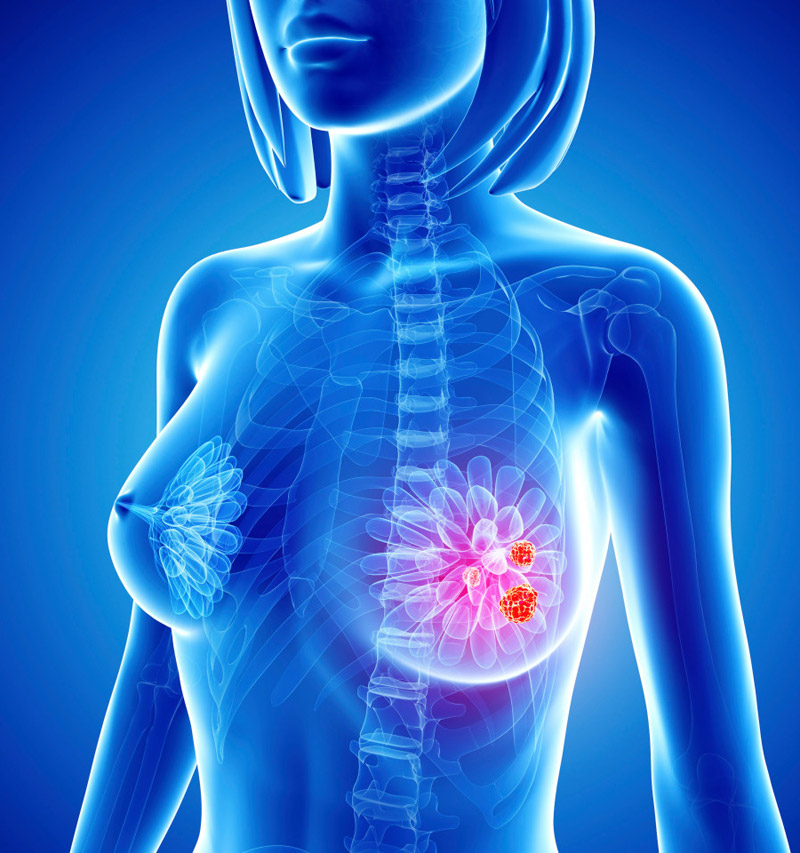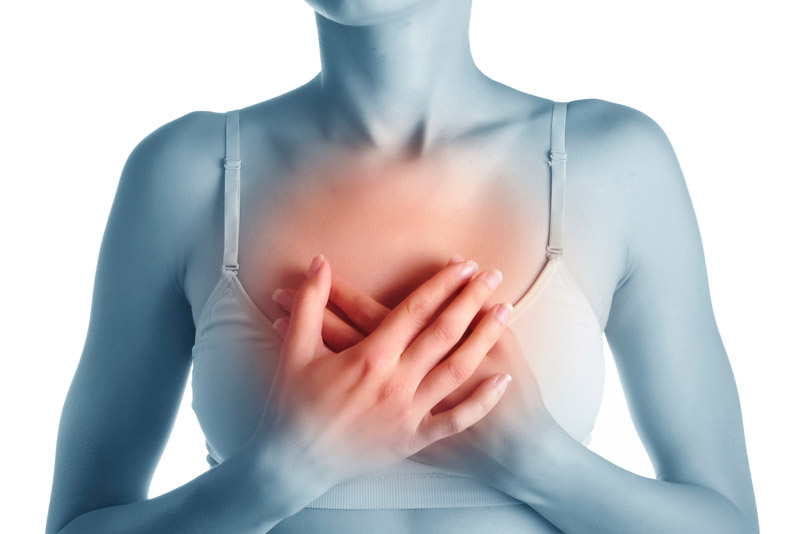
How often does breast cancer cause breast pain? If you have breast pain, what are the chances it’s cancer? What types of breast cancers are more likely to be painful? Since breast pain affects roughly half of all women at some point in our lives, these are important questions to be asking.
Experiencing Breast Pain
Breast pain is usually not a sign of breast cancer. In fact, many of us who are diagnosed with breast cancer after a suspicious mammogram are shocked – we had no breast pain, so how could something be wrong?
The truth is that breast cancer is a rather sneaky disease that hides within breast tissue, using your body’s resources to grow and thrive. Breast cancer doesn’t usually begin by causing breast pain, but if it gets beyond a certain point, it can become painful.
Most Breast Pain Is Benign
Breast pain, or mastalgia, happens only rarely with breast cancer. Most of the time, breast pain happens along with your menstrual cycle, but it can also be linked to benign non-hormonal causes. Other benign conditions which can cause breast pain include breast cysts, fibroadenomas or blocked milk ducts – but even though the pain with these conditions can be very annoying, it is not usually dangerous.
Statistics About Breast Cancer and Pain

A breast tumor – a hard clump of breast cancer cells – usually doesn’t cause breast pain unless it reaches the size of 2 centimeters (almost 0.8 inches) in diameter or greater.
But a tumor can be larger than 2 cm and still not cause pain. In fact, only about 5 to 15% of women newly diagnosed with breast cancer complain of breast pain. Only 7% of those diagnosed with breast cancer seek a doctor because of breast pain, excluding other symptoms.
How Breast Cancer Pain May Feel
If breast cancer is the cause of breast pain, it will often be present in only one breast, whereas benign breast pain is often on both sides.
(An exception is non-hormonally related breast pain which is usually on one side.) Breast cancer pain can be persistent and very specific, always hurting in just one spot. But, breast cancer can be present in your breast before it causes pain. If you have other symptoms of breast cancer, such as nipple retraction, sudden swelling of your breast, or sudden skin changes, consult your doctor for a clinical breast exam.
Inflammatory Breast Cancer and Pain
Inflammatory breast cancer can cause breast pain which is usually unrelated to your cycle. Along with pain you may notice redness and severe itching.
Metastatic Breast Cancer and Pain

Metastatic breast cancer may also cause pain. It could be from a larger tumor – these are often over 2 cm in diameter – or pain in other regions of the body due to the spread of cancer. If cancer spreads to your bones, it may cause bone pain, or back pain with leg weakness. If cancer spreads to your brain it may cause headaches. In case breast cancer travels to the adrenal glands, you may feel a dull back pain.
If your cancer spreads to the liver, you could have pain in the upper right part of the abdomen and develop jaundice (a yellowing discoloration of the skin.)
Breast Pain in Men and Breast Cancer in Men
As with breast cancer in women, breast cancer in men is often painless. That said, it tends to push on nearby structures more rapidly than a tumor would in most women. In addition, hormone-induced breast pain is also, of course, less likely to occur in men. If you are a man experiencing breast pain, play it safe. Breast cancer can and does occur in men, and though only 1 in 100 breast cancers occur in men, that’s still far too frequent.
Does Breast Pain Increase the Risk of Breast Cancer?
A question related to the statistics on pain in breast cancer is, “Does having breast pain increase the risk of breast cancer?” Though it’s uncommon, there are some painful breast conditions which may raise your risk.
When to See Your Doctor
It’s important to talk to your doctor if you have breast pain from any cause. Even if it’s not due to cancer, many women find that breast pain decreases their quality of life. In one study, 15% of women experience breast pain at some time in their life that interferes with work and family activities. Talk to your doctor.
The information on this site is not intended or implied to be a substitute for professional medical advice, diagnosis or treatment. All content, including text,graphics,images and information, contained on or available through this web site is for general information purposes only.





Leave a Reply